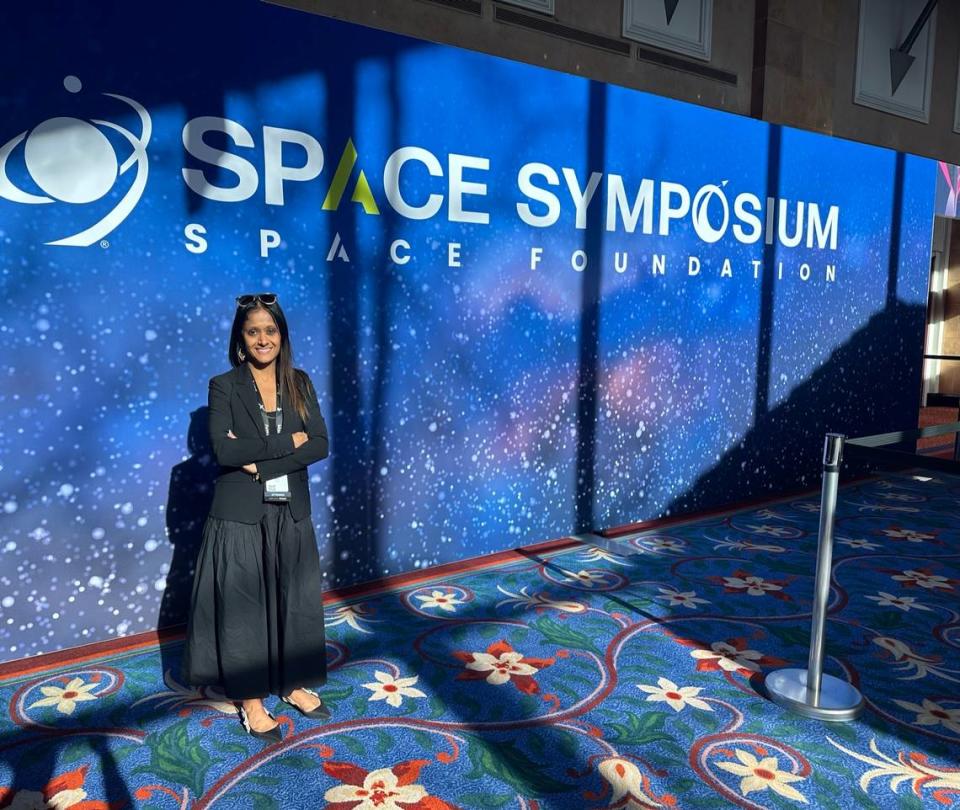Kentucky’s focus on aerospace and manufacturing puts the stars within reach | Opinion
“We’ve got to start complementing our incredible design capacity with incredible building and manufacturing capabilities again.” ~ Dan Goldin, 9th NASA Administrator
“If you look at the four biggest employers in Kentucky, two of them are automakers, Ford and Toyota, and two of them are logistics, UPS and Amazon.” ~ Jason Bailey, Executive Director of the Kentucky Center for Economic Policy.
In the heart of the Bluegrass State, Space Tango is emblematic of a transformative journey, where economic growth, technological innovation, and talent expansion converge. Kentucky has a higher percentage of personnel employed in manufacturing than most of the United States, particularly in the automotive supply chain. The logistics industry is also a large and growing employer, driven in part by the explosion of e-commerce. Success in the automotive and logistics industries have shaped Kentucky’s growth, and Kentucky’s talent has played a pivotal role in return.
Kentucky’s historical incentives aligned around manufacturing have yielded many best practices — from project cost efficiency to effective testing and failure tolerance development for transportation platforms. Glass packaging production company O-I Glass’s recent expansion, creating 140 jobs for Kentuckians, will be the first purpose-built facility of its kind to use the new technology known as Modular Advanced Glass Manufacturing Asset (MAGMA), to increase speed-to-market and efficiency in the manufacturing process. The Warren County operation will include renewable electricity, gas-oxy fuel and other innovative technology and processes.
Manufacturers have driven innovation and workforce expansion in Kentucky’s economy for years, with $24.40 billion in manufactured goods exports in 2020 creating much needed roles drawing on Kentucky’s talent. Small businesses comprised 79.00% percent of all exporters in Kentucky. The Kentucky workforce has shaped the key success factors in manufacturing and industry for decades, and Space Tango is taking those principles to the stars.
Space Tango provides automated solutions for data and manufacturing capabilities in microgravity.
Coupled with now 262 payloads of flight heritage and scientific analysis on the International Space Station, we guide customers through designing, integrating, and operating their payloads in space. Our mission is to create transformational solutions with our current technology as a blueprint, identifying manufacturing applications on the International Space Station, commercial space stations, and beyond.
Economic growth and space economy
In the dynamic landscape of the space sector, where an astounding US $272 billion in private equity investments flowed in 2022 alone, Kentucky’s strategic decision to diversify its economic portfolio is a timely move. Morgan Stanley’s assessment that the global space industry could generate revenue of more than $1 trillion or more in 2040 has appropriately attracted the attention of technologists and investors worldwide. However, to translate the hypothetical into the real, local economic initiatives are a must.
To serve as a catalyst for this economic growth, Kentucky’s Small Business Innovation Research (SBIR) and Small BusinessTechnology Transfer (STTR) Matching Funds program is recognized as one of the most successful in the region. It uniquely matches both phases of federal SBIR-STTR awards dollar-for-dollar, providing significant financial support for high-tech businesses at the earlier stage of technology readiness. This program has already benefited Kentucky’s emerging space sector.
State programs have also fostered the formation of biotechnology research clusters. Owensboro, home to Kentucky BioProcessing, leads in plant-based gene expression technologies for pharmaceutical compounds. The Owensboro Biotech Alliance, involving local farmers, emphasizes the integration of agriculture, higher education, and the life science industry, showcasing Kentucky’s commitment to biotechnology-driven economic growth.
Finally, the Kentucky New Energy Venture Fund (KNEV) was launched to support the development and commercialization of alternative fuel and renewable energy products. KNEV goals include growing companies in the alternative fuel and renewable energy sector, stimulating private investment, and establishing an industrial knowledge base.
Emerging trends like space data services and in-space manufacturing open avenues for the state’s skilled workforce, comprising engineers, scientists, and technicians, to play a pivotal role in shaping the future of the space industry, alongside parallel growth in biotech and renewable energy. Kentucky is ideally suited to catlayze this growth through its rich ecosystem of economic programs, manufacturing best practices, and the most critical success factor in any industry: talent.
Workforce Development
The recognized shortage of skilled workers in the aerospace industry is a pressing concern. Kentucky’s commitment to proactive programming in Science, Technology, Engineering, Arts, and Mathematics (STEAM) education must continue to create pathways for all educational levels into the space industry. As part of the state’s STEM initiatives, the Commonwealth of Kentucky has created high school engineering pathways to excite and drive interest in top Engineering fields; “special attention is also paid to Aerospace Engineering as this is Kentucky’s top export and only second to Washington State in export dollars.”
Space Tango continues to support collaborations among industry stakeholders and educational institutions to enable tailored curricula to address industry gaps, ensuring a well-prepared workforce.
As technology evolves, so does the demand for expertise in areas like materials, artificial intelligence, and automation. Addressing commercial market demands and establishing space-based supply chain methodologies require disruptive approaches that the state of Kentucky’s manufacturing history is well positioned to shape.
Threading the demands of commercial aerospace with the existing prominence of a manufacturing workforce, Kentucky’s economic odyssey in space is already underway, fueled by the convergence of public and private initiatives, technological advancements, and partnerships between industry and educational institutions to tailor curricula to address gaps.
As we navigate this transformative journey, Kentucky’s commitment to innovation, workforce development, and biotechnology positions itself as a frontrunner in the evolving space economy.
The stars are not just above; they are within reach.

S. Sita Sonty, CEO of Space Tango, is a trusted leader in aerospace, having previously held key roles in the space industry including Head of Human Spaceflight Sales at SpaceX, Vice President at Sierra Nevada Corporation, and a distinguished diplomatic career spanning over seventeen years.

